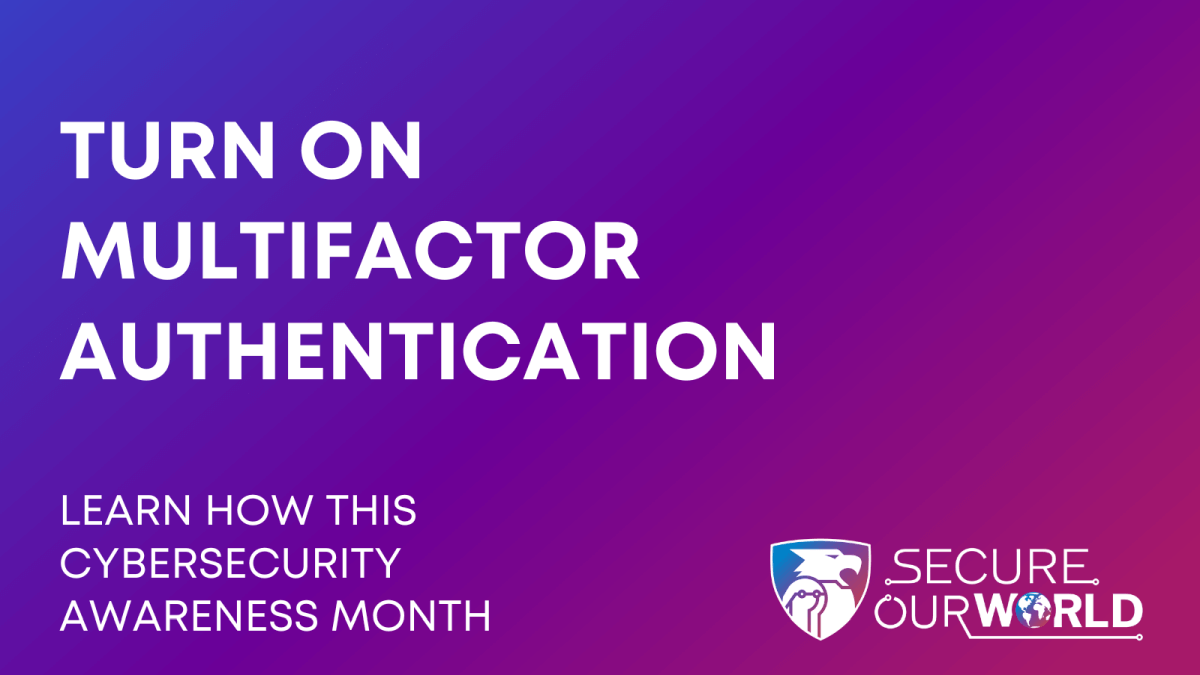Are you still relying on just one password to guard your online accounts? It's time for a security upgrade because a strong password alone no longer guarantees online safety in today's world of constant lurking hackers.
That's where multifactor authentication (MFA) swoops in.
Multifactor authentication is a smart way to add an extra shield to your online security. It's more than just a password - it's like having a virtual security checkpoint that requests more than one form of identification before granting access. This simple yet powerful approach makes it much harder for unauthorized individuals to breach your accounts and helps keep your online information safe and sound.
As Cybersecurity Month 2023 is coming to an end, it's a great time to reflect on the growing threats that could disrupt our personal and professional lives. This emphasizes the importance of adopting essential security measures, with multifactor authentication (MFA) being a standout solution.
What is multifactor authentication?
Multifactor authentication (MFA) is like a digital security double-check. When you log into an account or system, it asks for two or more things to prove it's really you. These things can be:
- Something you know, which is your password.
- Something you have, like your phone, a card, or a special token.
- Something you are, which could be your fingerprint or your face
MFA adds an extra layer of protection, making it tough for hackers to get into your accounts that have personal or financial information, like email, banking, and social media. Even if they somehow grab your password, they still need that second factor to gain access.
According to a Microsoft report, MFA blocks 99.9% of account compromise attacks.
The vulnerability of single-factor authentication
Using single-factor authentication, which typically involves just a password, without the additional layer of security provided by biometric data or a smartphone confirmation, poses several risks:
-
Weak Passwords: Relying solely on passwords, especially when they are simple or easy to guess, essentially gives hackers easy access to your accounts, making unauthorized access a breeze for them.
-
Credential Theft: Stolen passwords can lead to more account breaches, especially if you reuse passwords across different accounts.
-
Lack of Multi-Layered Security: Without these additional layers, your accounts are more vulnerable to unauthorized access.
-
Phishing: You can fall for scams that trick you into giving away your password. Relying solely on a password for authentication makes you more susceptible to these cyberattacks.
-
Brute Force Attacks: Attackers can use automated tools to systematically try different combinations of passwords until they find the correct one.
-
Account Takeovers: Once an attacker gains access to your account, they may misuse it for fraudulent activities, causing harm to your online identity and reputation.
-
Limited Recovery Options: If you forget your password, recovering access can be challenging without additional authentication methods.
The Significance of MFA in Online Security
Let's look at a few real-world examples to illustrate the importance of MFA.
Email Account: Imagine a cybercriminal gaining access to your email. They can reset passwords for other accounts, access personal information, and launch further attacks. MFA would prevent this scenario, as they would need both your password and your mobile device or security token to access your email.
Online Banking: Your financial well-being is at stake if someone breaches your online banking account. MFA ensures that even if your password is stolen, your money remains safe because the attacker can't access your account without the second authentication factor.
Social Media: A compromised social media account can tarnish your reputation, spread malicious content, or scam your contacts. MFA safeguards your social media presence, preventing unauthorized access attempts.
In conclusion, MFA is a great way to keep hackers away from your online accounts. MFA steps in to help in this situation by requiring additional information than just your password.
It gives you online security and peace of mind because you can be sure that your accounts are safe even if someone gets your password. Plus, it's your trusty backup plan for those forgetful moments or phone losses. Embrace MFA as a potent tool guarding your online privacy and security.

